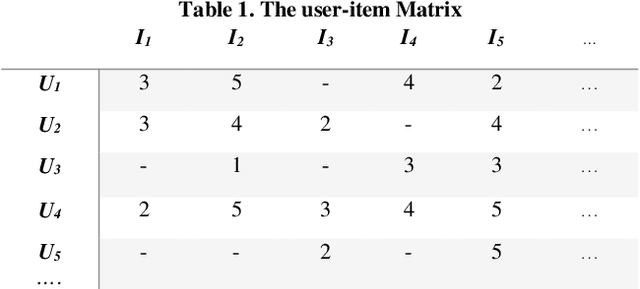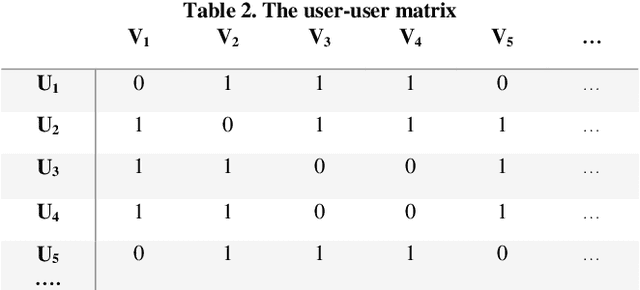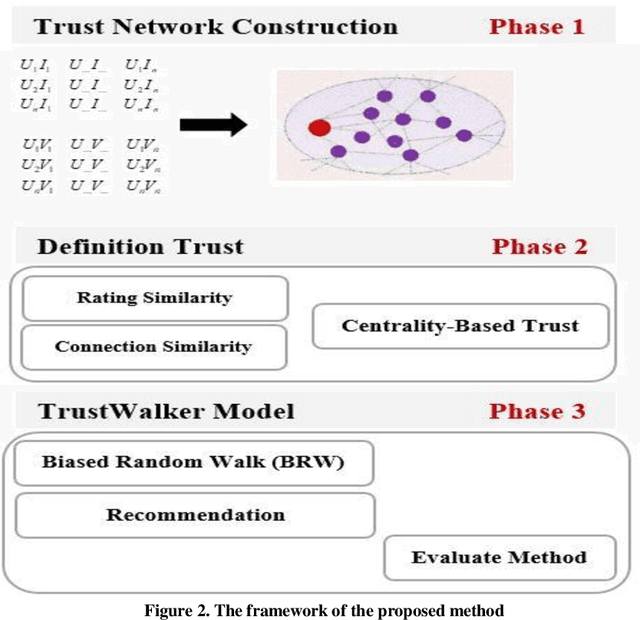Presentation a Trust Walker for rating prediction in Recommender System with Biased Random Walk: Effects of H-index Centrality, Similarity in Items and Friends
Paper and Code
Sep 10, 2020



The use of recommender systems has increased dramatically to assist online social network users in the decision-making process and selecting appropriate items. On the other hand, due to many different items, users cannot score a wide range of them, and usually, there is a scattering problem for the matrix created for users. To solve the problem, the trust-based recommender systems are applied to predict the score of the desired item for the user. Various criteria have been considered to define trust, and the degree of trust between users is usually calculated based on these criteria. In this regard, it is impossible to obtain the degree of trust for all users because of the large number of them in social networks. Also, for this problem, researchers use different modes of the Random Walk algorithm to randomly visit some users, study their behavior, and gain the degree of trust between them. In the present study, a trust-based recommender system is presented that predicts the score of items that the target user has not rated, and if the item is not found, it offers the user the items dependent on that item that are also part of the user's interests. In a trusted network, by weighting the edges between the nodes, the degree of trust is determined, and a TrustWalker is developed, which uses the Biased Random Walk (BRW) algorithm to move between the nodes. The weight of the edges is effective in the selection of random steps. The implementation and evaluation of the present research method have been carried out on three datasets named Epinions, Flixster, and FilmTrust; the results reveal the high efficiency of the proposed method.
 Add to Chrome
Add to Chrome Add to Firefox
Add to Firefox Add to Edge
Add to Edge